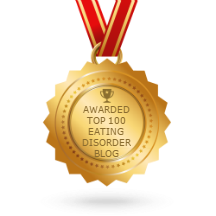- Home
- About
-
Services
- Therapy
-
Eating Disorder Trainings
>
- Clinical Approaches To Treating Body Image Issues
- Clinical Approaches To Treating Bulimia & Binge Eating Disorder
- Finding Freedom From Binge Eating
- Finding Freedom From Anorexia
- Supporting A Loved One With An Eating Disorder
- Eating Disorder Recovery Road Map
- Healing From Body Hate And Practicing Self-Compassion
- Common Questions
- Blog
- Press
- Contact
|
You know who can make a really un-fun travel companion? An eating disorder. At the worst of my illness-I remember crying in anticipation of a weekend away. Being able to prepare my own food and stick to my rigid exercise routine was my safety blanket-and when traveling, it felt like it was being ripped away from me. I spent a huge amount of time and energy thinking about food, weight, and exercise while traveling. It was exhausting. Now, as I’m about to spend a week on vacation with a friend-I am so grateful to be able to actually enjoy vacations (including the food!) The following are a few tips if vacation anxiety is getting the best of you. 1. Think about what you’d want your ideal vacation to look like if you were recovered. Write out what you’d want to be focusing on if the eating disorder was not invited on your vacation. What memories and moments would you want to have? Eating disorders take you away from your true values and tend to cause you to focus on food, weight, and exercise. Work to take some ‘opposite actions’ to eating disorder urges when you are traveling that are in alignment with your vision: i.e. if your eating disorder tells you to restrict or binge at lunch-challenging yourself to nourish yourself appropriately. Example: If your eating disorder is telling you NOT to have a fruity drink-order the fruity drink. I know that taking ‘opposite actions’ is not easy but over time you will create new neural pathways in your brain and the positive behaviors will become more automatic. 2. Lean on your support system. If you are traveling with someone who you feel comfortable talking to about your eating disorder-try sharing with them what would be most helpful. Many people want to help but often they don’t know how. For example, telling your partner: “If I’m having a hard time making a decision on what to order when we’re out to eat, can you choose for me.” If you are working with a therapist, dietitian, and/or recovery coach-you can also email them for support as well. Real talk: reaching out for support when you’re struggling is so strong. 3. Plan what you can in advance. If there are any situations that you can plan to ‘cope ahead’ for in advance with your therapist, dietitian, and/or coach-that would be one idea. It can also be really helpful to pack snacks or buy some when you get there to have on hand. However, it’s good to practice flexibility i.e. saying ‘yes’ when someone asks you to grab ice cream in the afternoon-rather than solely relying on packed snacks. 4. Practice radical acceptance. Radical acceptance is a concept from dialectical behavioral therapy. It doesn’t mean that we ‘like’ a situation rather that we stop fighting against it. Work to radically accept that some things may feel ‘out of control’ on vacation (however that’s just your ED talking) and that you might have increased anxiety. 5. Use those mindfulness skills. I describe mindfulness of your thoughts like this: -Not being mindful of thoughts is like you are outside in the storm in the rain, without an umbrella and you are totally caught in the midst of this raging storm. -Mindfulness of your thinking is like you are watching the storm raging outside from indoors behind a window. The storm is still there but it’s not impacting you as much. Remember that just because you have a thought, does NOT mean that it is true. You can practice mindfulness by visualizing your thoughts being placed on leaves as they float down a stream. Practice responding to your eating disorder thoughts with some healthier statements-and consider making a list in the notes section of your phone so that this list is easily acceptable. Example: Eating Disorder Thought: You are gaining so much weight-you need to eat less. More Helpful Thought: I want to be at whatever weight enables me to travel without guilt, fear, or anxiety. Life is about so much more than my weight. My Hope for You My hope for you is that you get to have a positive experience while traveling and that someday you get to travel completely ED free. Life is far too short to be spending your vacation looking for the nearest gym, obsessing about food, or being bogged down by negative body image. You can totally get there. Just take it one ‘opposite action’ at a time. Jennifer Rollin, MSW, LCSW-C: is an eating disorder therapist in private practice in Rockville, Maryland. Jennifer specializes in helping teens and adults struggling with anorexia, binge eating disorder, and bulimia, and body image issues. Jennifer provides eating disorder therapy in Rockville, MD. Jennifer offers eating disorder recovery coaching via phone to people worldwide. Connect with Jennifer through her website: www.jenniferrollin.com
1 Comment
1/30/2020 09:26:09 pm
If there's a way for me to turn back time, I guess I will still be doing the same things I am doing today. Maybe I will still approach the same people. Maybe I will openly declare how fond I am with such humans I loved before. I don't know. Maybe I am just like this. I honestly don't see anything wrong with what I have done. Maybe this place and time I was living in was wrong. Maybe in another dimension somewhere people are allowed to do the things I do.
Reply
Leave a Reply. |
About MeI'm an eating disorder therapist in private practice in Rockville, MD. Archives
June 2024
|


 RSS Feed
RSS Feed
